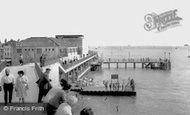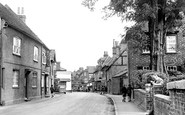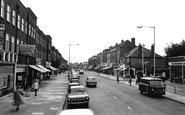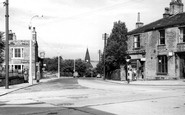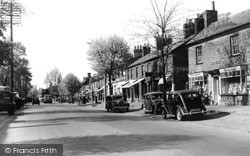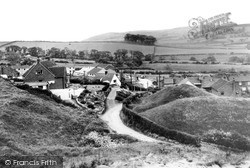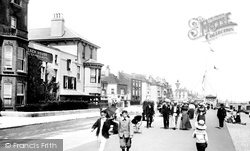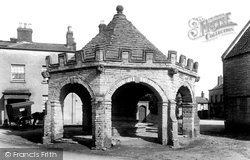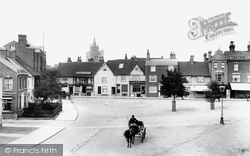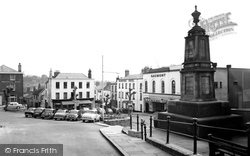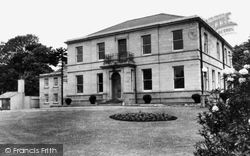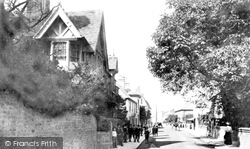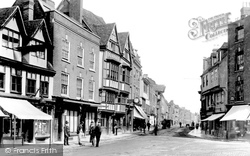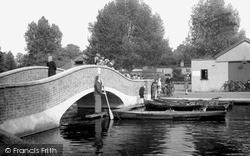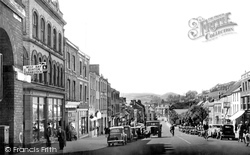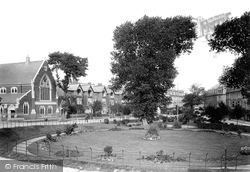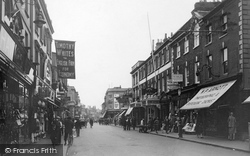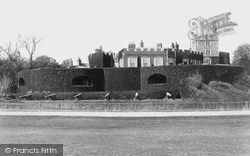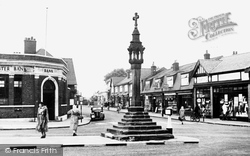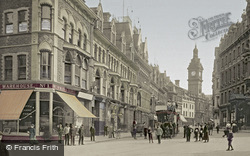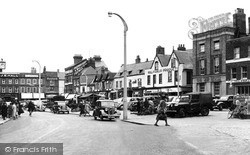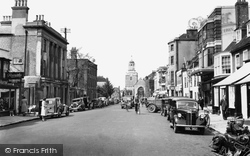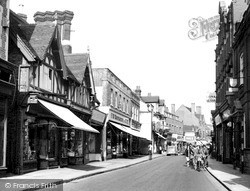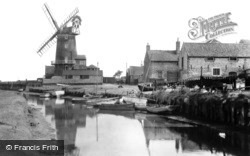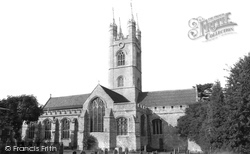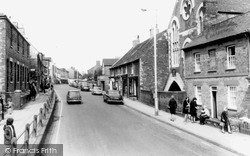Places
26 places found.
Those places high-lighted have photos. All locations may have maps, books and memories.
- Town End, Derbyshire
- Town End, Buckinghamshire
- Town's End, Somerset
- Towns End, Dorset
- Town End, Merseyside
- Town End, Cambridgeshire
- Town's End, Buckinghamshire
- West End Town, Northumberland
- Bolton Town End, Lancashire
- Kearby Town End, Yorkshire
- Town End, Cumbria (near Grange-Over-Sands)
- Town End, Cumbria (near Bowness-On-Windermere)
- Town End, Yorkshire (near Huddersfield)
- Town End, Yorkshire (near Wilberfoss)
- Town End, Cumbria (near Appleby-in-Westmorland)
- Town's End, Dorset (near Melbury Osmond)
- Town's End, Dorset (near Swanage)
- Town End, Cumbria (near Ambleside)
- Town End, Cumbria (near Lakeside)
- Town End, Cumbria (near Kirkby Lonsdale)
- Town End, Cumbria (near Ambleside)
- Town's End, Dorset (near Bere Regis)
- West-end Town, South Glamorgan
- Townend, Derbyshire
- Townend, Strathclyde (near Dumbarton)
- Townend, Staffordshire (near Stone)
Photos
23 photos found. Showing results 3,341 to 23.
Maps
195 maps found.
Books
3 books found. Showing results 4,009 to 3.
Memories
3,719 memories found. Showing results 1,671 to 1,680.
Winter Of 63!
I was 9, my brother about 12, and my sister was 6, and we lived with our parents in a huge maisonette in Hamlet Court Road. That winter ('63) it snowed and snowed and was freezing for weeks. Our dad and his friend, who lived ...Read more
A memory of Westcliff-on-Sea in 1963 by
Mudlarks
My father was one of those so called 'Mudlark's. I remember him telling the stories of how they used to stage mock fights over the pennies to make people feel sorry for them and throw more money. The thought that they were poor orphans ...Read more
A memory of Portsmouth in 1930 by
Golden Days
I lived in Mossband and went to Gretna Township School, later known as Gretna High. Times were hard but we enjoed our time there and kept ourselves occupied potato picking in Rockliffe and Todhills, rose hip collecting, and I ...Read more
A memory of Mossband Ho in 1951 by
Mr Farthing
Adding to someone else's comment the gentleman leaning over the wall - it is indeed Mr Farthing, he was my form teacher at Twyford Boys' School. I was born a few yards further along in one of the cottages next to the school. The ...Read more
A memory of Twyford in 1960 by
Growing Up In Barkingside
I spent most of my childhood in Barkingside and I lived above Pithers Bakeries from 1960 (when I was born) until approx 1973, we moved to Fairlop Road when Sainsburys was built. I do remember fondly Marments the toy ...Read more
A memory of Barkingside by
Bombing Of West Hendon
I remember when three streets were demolished by a huge mysterious bomb just after eight in the evening. At the time my mother was out on fire patrol and I was fast asleep in bed whilst my three brothers and sister were ...Read more
A memory of West Hendon in 1941 by
Elmers End
I was born in Beckenham Hospital - the one next to a park I believe. I grew up in Elmers End and attending Elmers End & Eden Park Preparatory School - my husband and I tried to find the school a few years back when we came over ...Read more
A memory of Beckenham by
Prospect House
I was born at my Grandad & Grandma's house in Prospect House and lived there until 1951 when I moved to Highfield, I remember walking down the railway line to school at Highfield with my friend's Maureen French and ...Read more
A memory of Victoria Garesfield in 1947 by
West Norwood
I spent my childhood in West Norwood. We lived next to the Cemetary Wall in Hubbard Road. We often drive there for "a trip down memory lane". It looks like a little toy town now and so built up. Kingswood School was a ...Read more
A memory of West Norwood in 1968 by
Not Greengates But Gods Green Acre
I was born in Bradford 1947 and grew up at Redcar Road. I remember Glovers the newsagents on the corner of this photo and across the road in New Line just down from the Roebuck pub my mum took me on the bus ...Read more
A memory of Greengates in 1947 by
Captions
5,054 captions found. Showing results 4,009 to 4,032.
Along with the substantial numbers of parked cars along the verges, a laden lorry and a coach are advancing down the High Street, representative of the immense numbers of similar heavy vehicles which
Looking at this view, it is hard to believe that many of the towns and villages of East Cleveland were industrially based, but indeed they were largely dependant on ironstone mining for almost a century
The town of Oban is only a little more than 200 years old. It owes its origins to when a fishing station was established here by the government Fishery Board in 1786.
The Beach House Temperance Hotel (to the right in photograph No 44204) is apparent on the left in this view of the broad Esplanade, looking towards the centre of the town.
Heading back north, we cross the River Yeo and reach Somerton, another medieval market town, this time on a ridge in the Polden Hills and on the south bank of the River Cary, which weaves through the
Kingsbury Square is the market place for the oldest part of the town; this grew up around the church, whose tower can be seen beyond the roofs.
'Chepe' and 'stowe' combine to mean 'market place', which indicates the early origins of this town.
After a succession of owners and tenants, the estate was sold to Featherstone Council in 1930 for £3,600, after which it was used as the Town Hall and a public park.
Broadwater is the old parish on which Worthing was built; its church is the mother church of the town. It was an old market under the Camois family, and is now a district of Worthing.
Lack of major industrial development in Tewkesbury meant that the town retained much of its 17th- and 18th-century character and did not experience much of an explosion in its population.
South-east of the town, along the valley of the River Ise and west of Barton Seagrave village, is The Wicksteed Park with the river dammed to form a large lake as the centrepiece.
A remarkably foreshortened shot, westwards down West Street, with the 1785-built arch (far left) being the north- west corner of the Town Hall.
Looking from the Hall (or the Palace Avenue Theatre) through the gardens, we can see Norton's and Welton's shoe shops.
The town achieved some status as a holiday resort, particularly as a touring centre and as a base for leisure yachting.
Along with Deal and Sandown, Walmer was one of the 'Three Castles which keep the Downs'.
In contrast with the western side of the Wirral Peninsula, the towns and villages of the east have become one continuous conurbation because of their proximity to the River Mersey and Liverpool.
This ancient town crowns the steep hill above the valley of the River Kensey. Here we see the broad market place, with its pleasing facades of 17th- and 18th-century slate-roofed buildings.
The Town Hall tower (centre right), designed by T M Lockwood and E A Landsdowne, was opened in 1885. It has since been demolished to make way for the British Home Stores.
The north side of the Market Place was the drinking heart of Wisbech, whose taste for alcohol saw one hundred inns, taverns and pubs recorded around the town.
An important sailing centre, Lymington was originally a Saxon port, and there was shipbuilding here between the Norman era and the 18th century.
Fletchers and Woolworth's (left) have been built on the site of the Queen's Arms public house and the old Fotherley Almshouses, which had been erected in 1682 to provide for five poor widows of the town
This picturesque flint village was once the most significant of the Glaven estuary ports, and its old Custom House bears testimony to its prestigious past.
Said to be one of the finest town churches in Kent, the parish church is built of Kentish ragstone and has an impressive interior.
This is not one of Northamptonshire's most attractive boot and shoe towns - and what old buildings remain are now isolated by new buildings, some visible in this view.
Places (26)
Photos (23)
Memories (3719)
Books (3)
Maps (195)

